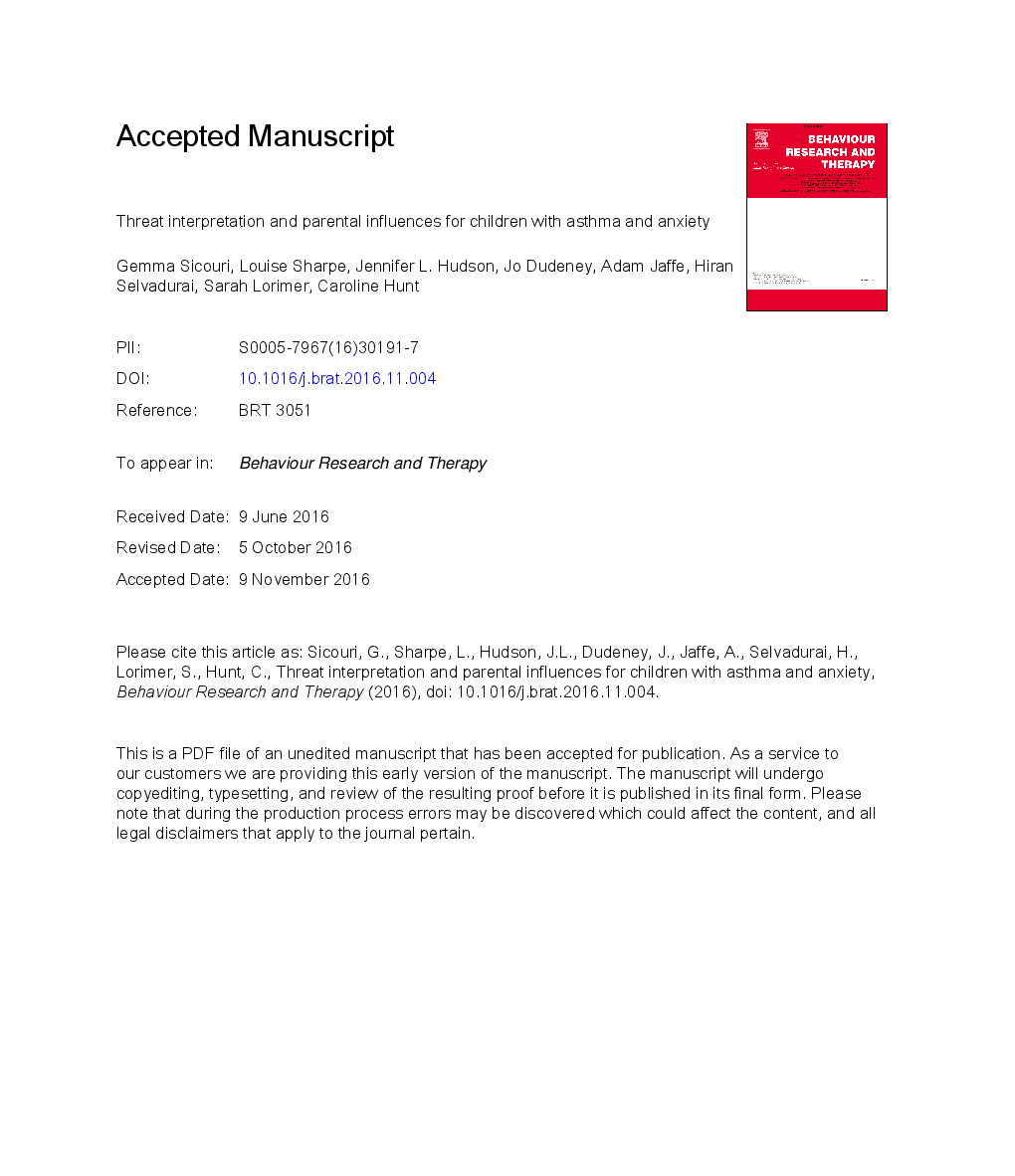ترجمه فارسی عنوان مقاله
تفسیر تهدید و تأثیرات والدین برای کودکان مبتلا به آسم و اضطراب
عنوان انگلیسی
Threat interpretation and parental influences for children with asthma and anxiety
| کد مقاله | سال انتشار | تعداد صفحات مقاله انگلیسی |
|---|---|---|
| 126485 | 2017 | 44 صفحه PDF |
منبع

Publisher : Elsevier - Science Direct (الزویر - ساینس دایرکت)
Journal : Behaviour Research and Therapy, Volume 89, February 2017, Pages 14-23
ترجمه کلمات کلیدی
اضطراب، آسم، تعصب تعبیر، فرزندان، روابط پدر و فرزند،
کلمات کلیدی انگلیسی
Anxiety; Asthma; Interpretation bias; Children; Parent-child relations;
ترجمه چکیده
اختلالات اضطرابی در کودکان مبتلا به آسم بسیار شایع هستند، اما در مورد عوامل شناختی و والدین که ممکن است این ارتباط را پایه ریزی کند بسیار کم است. در این مطالعه، تعصبات تفسیری در کودکان مبتلا به آسم و اضطراب و والدین آنها مورد بررسی قرار گرفت و اینکه آیا بحث والدین و فرزندان بر تفسیرهای فرزند تاثیر می گذارد. هشتاد و نه فرزند پدر و مادر در چهار گروه شامل کودکان مبتلا به آسم و اضطراب، کودکان مبتلا به اضطراب، کودکان مبتلا به آسم و کودکان سالم (8 تا 13 ساله) بودند. تعصب تفسیری با استفاده از سناریوهای مبهم مورد ارزیابی قرار گرفت. کودکان مبتلا به اضطراب، تعصب تفسیری را در سناریوهای تهدید کننده عمومی نشان دادند، در حالی که کودکان مبتلا به آسم، تعصب تفسیر را در سناریوی تهدید آسم نشان دادند. پیش بینی های والدین از پاسخ های فرزندشان نتایج مشابهی را نشان می دهد. بحث کودکان والدین موجب اجتناب از کودکان با اضطراب و عدم وجود آسم در تمام سناریوها شد، اما فقط برای کودکان مبتلا به آسم و اضطراب در سناریوی تهدید آسم. نتایج حاکی از حمایت جزئی از نظریه شناختی آسم و اضطراب در کودکان است و نشان می دهد که والدین در تأثیر سبک های تفکر کودکان نقش دارند. بنابراین، برنامه های درمانی می توانند هدف و اصلاح تعصبات تفسیری را در کودکان با اضطراب و شامل والدین به عنوان بخشی از درمان.

